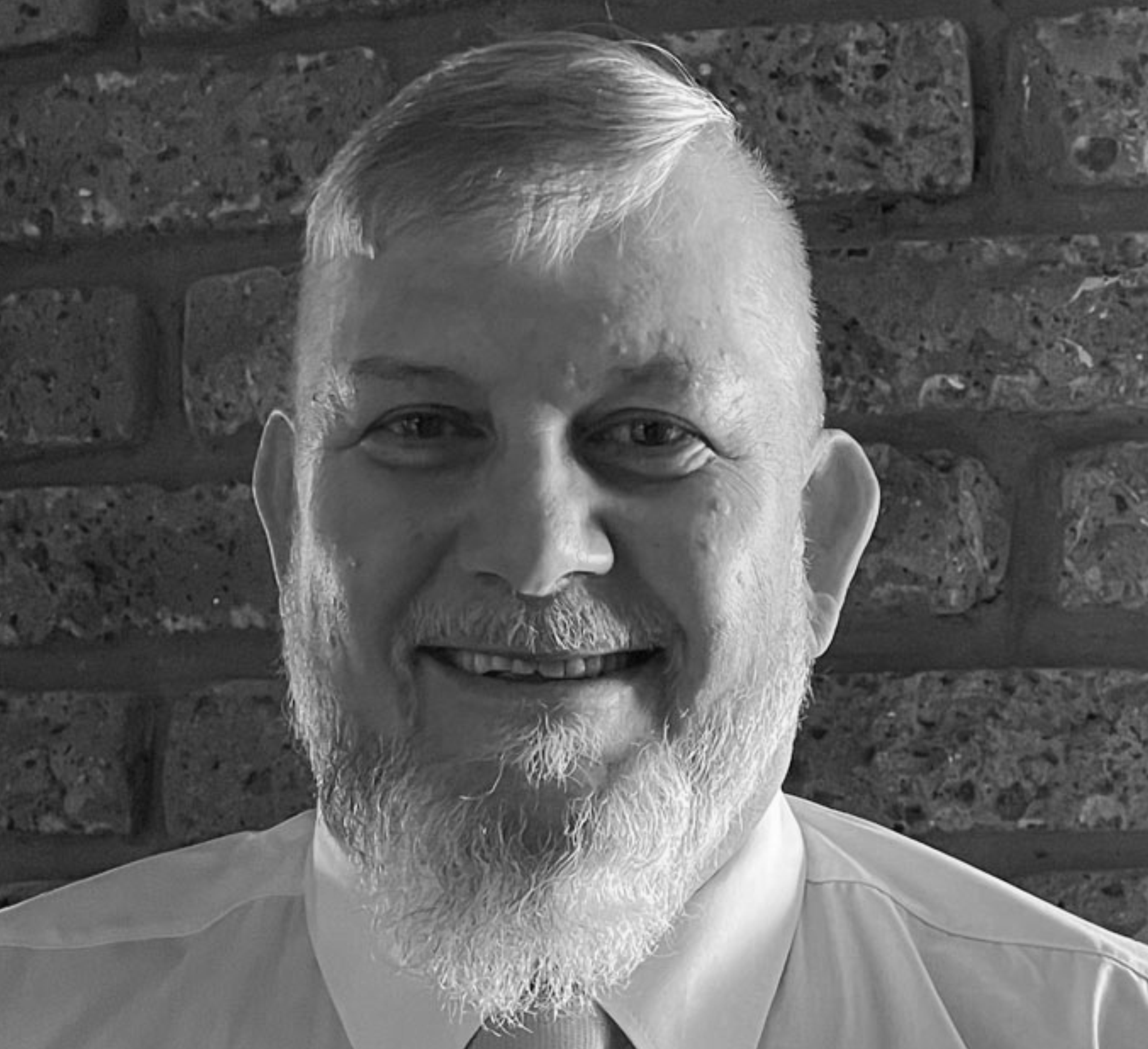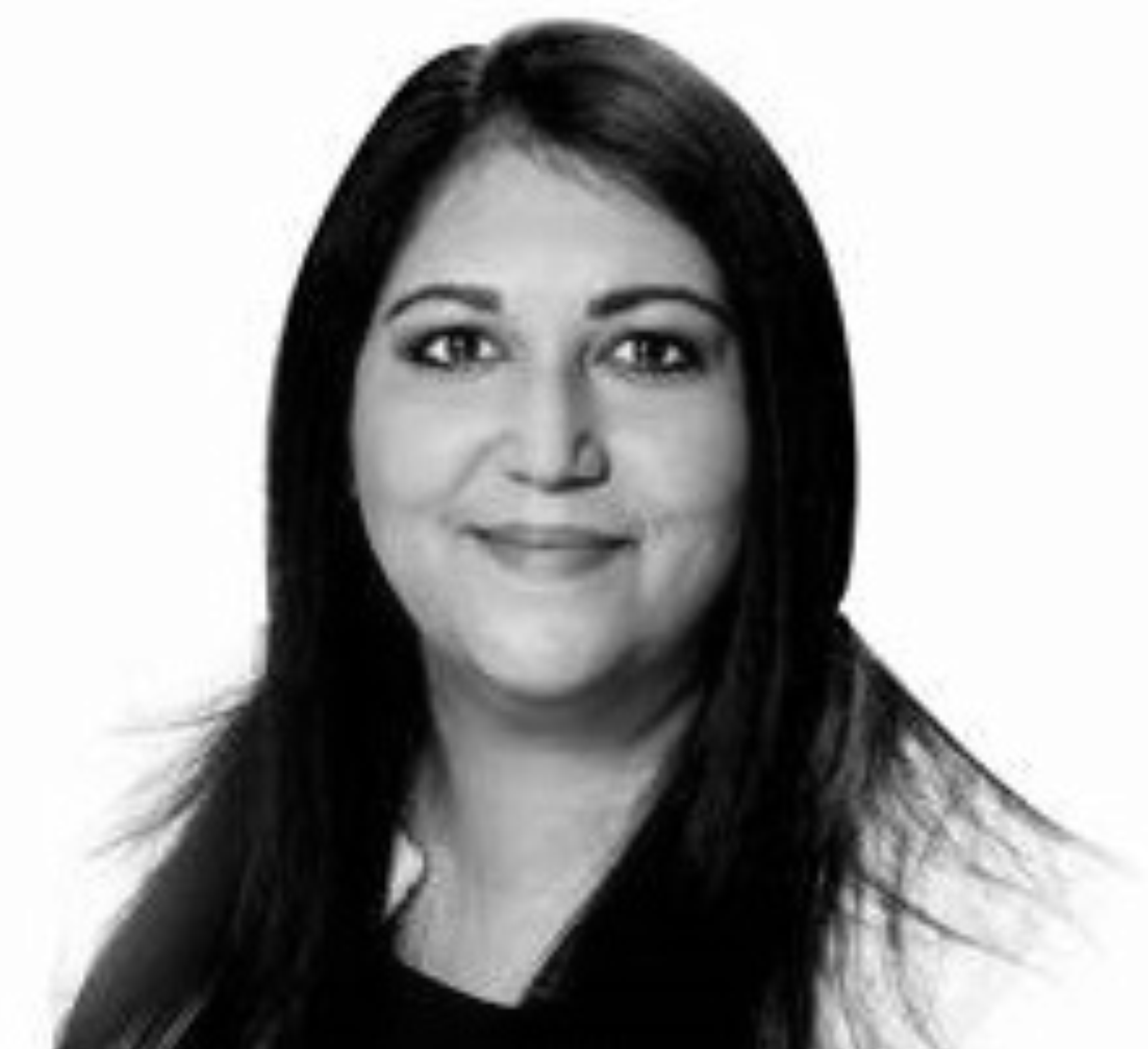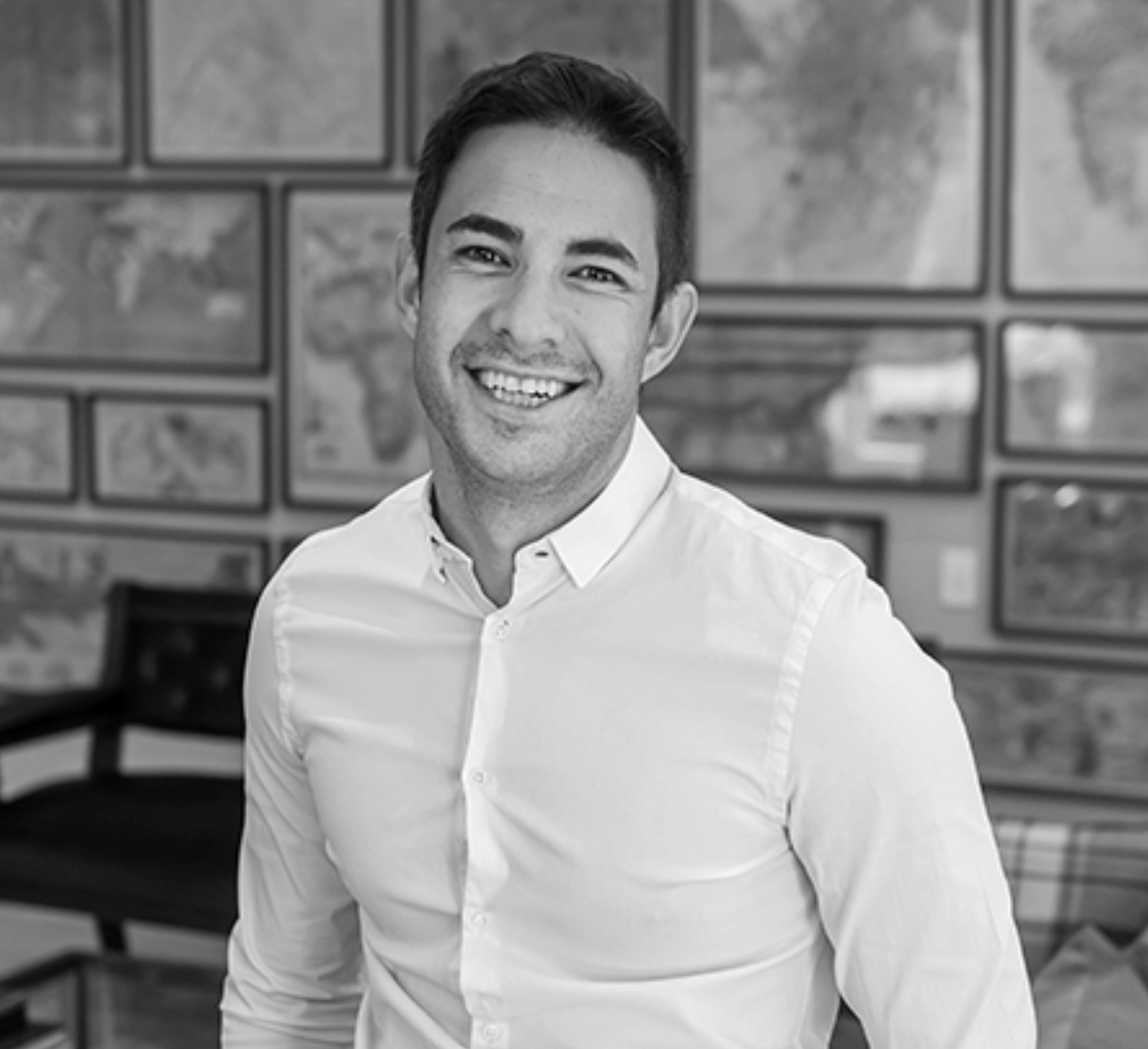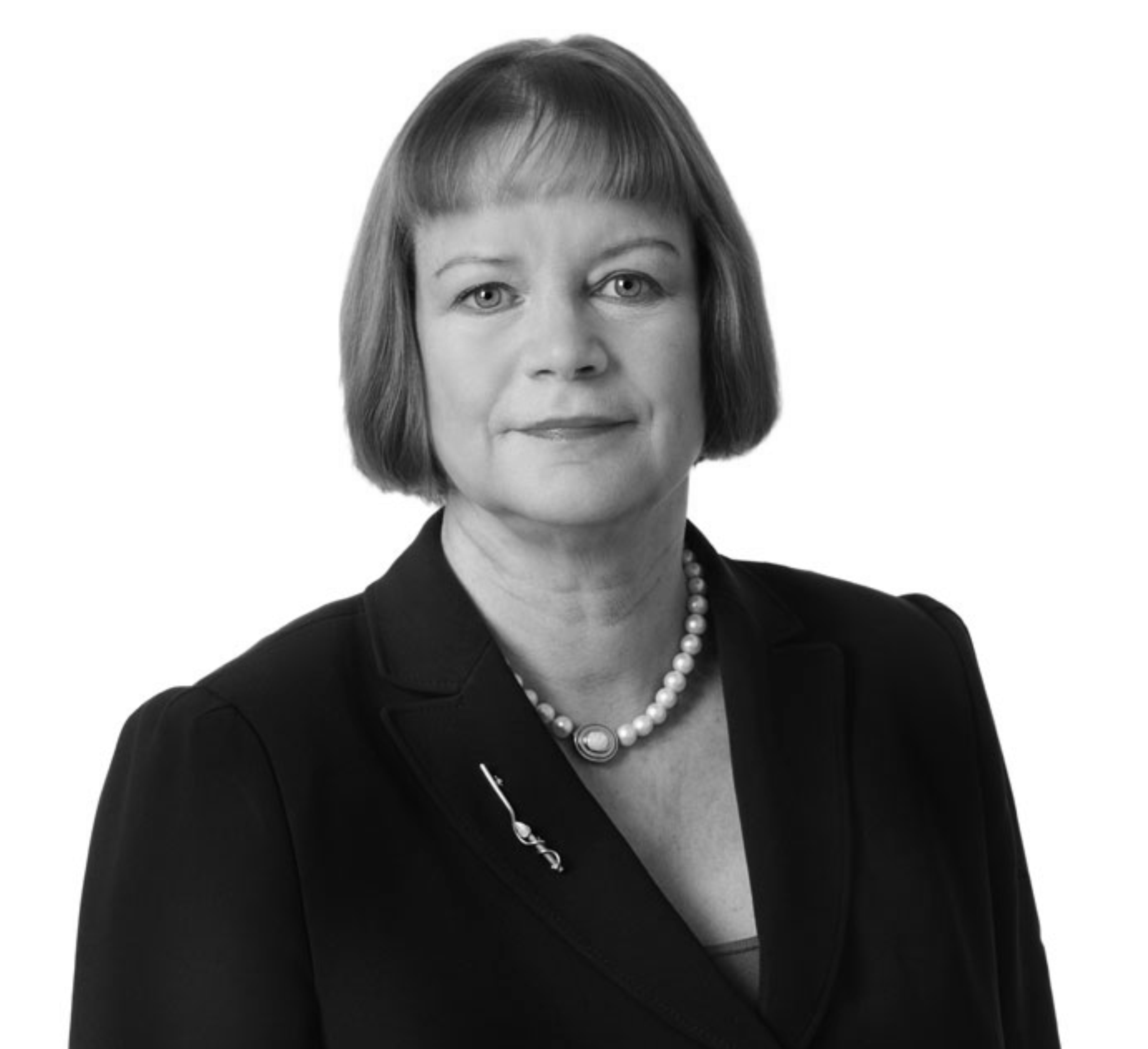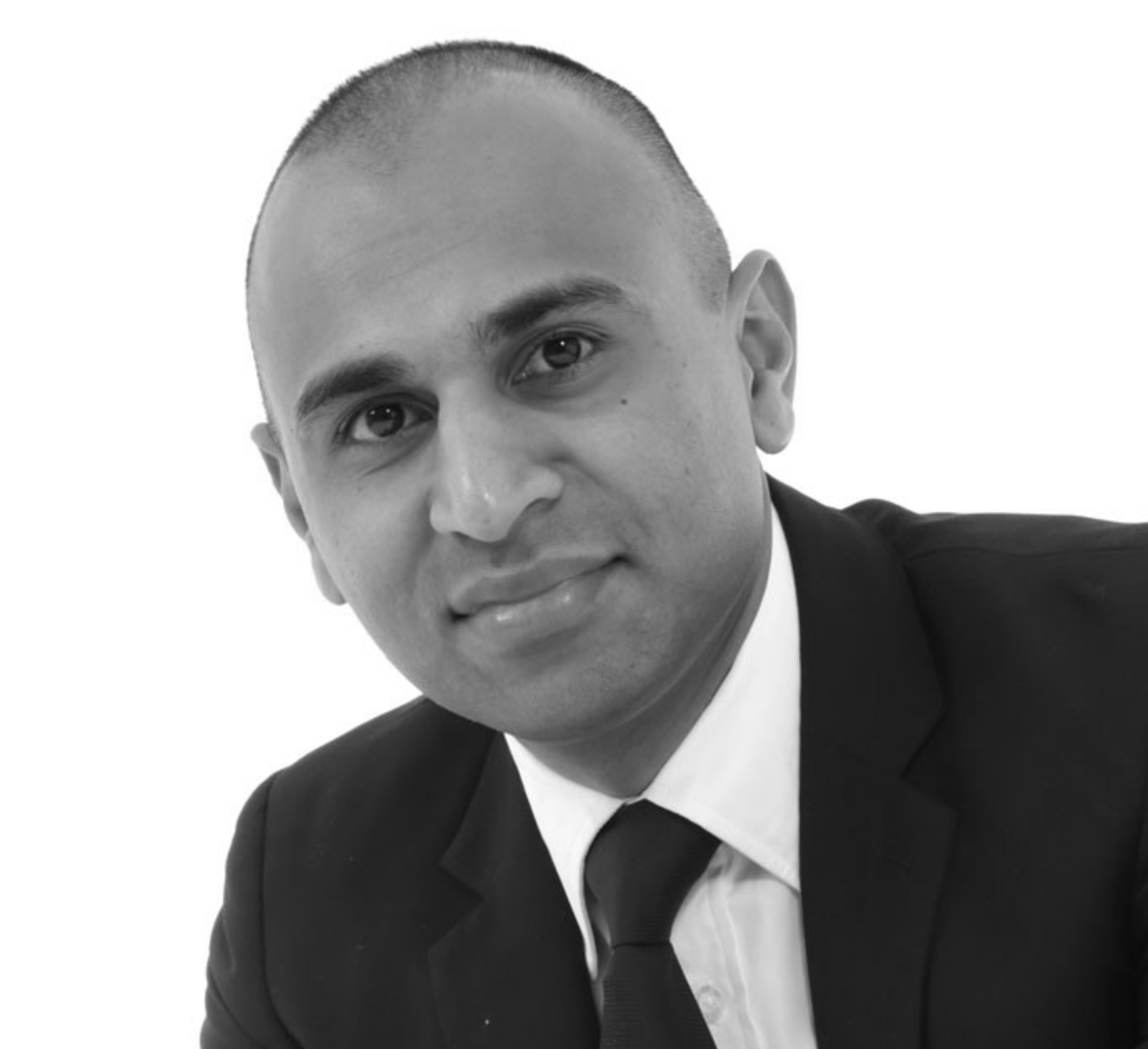131: Kevin Woolward
‘I never regret any decision I make.’
A man of integrity with a depth of experience, particularly in the non-profit sector, Kevin Woolward highlights the challenges of the past year for the South African Dental Association and provides some invaluable advice for up-and-coming accountants.

CIARAN RYAN: Today’s podcast is sponsored by Draftworx, which provides automated drafting and working paper financial software to more than 8000 accounting and auditing firms and corporations. CFO Talks is a brand of the South African Institute of Business Accountants. It’s my pleasure today to welcome Kevin Woolward, who is head of finance and membership development at the South African Dental Association, a position he’s held since 2018. He was previously under contract as an accountant at E Oppenheimer & Son. Prior to that, he was MD at C to G Foods, and before that he was CEO at the Thoroughbred Breeders’ Association of South Africa, where he was able to bring about a dramatic improvement in the financial performance of the organisation. Now, Kevin came to the world of senior finance operations in a rather unconventional way, he has a Bachelor of Accounting Science from Unisa, and a Master of Business Leadership also from Unisa. Then he went on to complete a higher diploma in taxation. So let’s get into that. First of all, Kevin, welcome to CFO Talks, where are we talking to you from today?
KEVIN WOOLWARD: Hi Ciaran, and welcome to all your listeners. I’m working from home in Roodekrans in Johannesburg. Our offices are in Parktown, but we’ve been working from home since March last year and probably until the end of this year.
CIARAN RYAN: We’ll get into that and the impact that Covid has had on your operations, but to begin, just tell us a little bit about your position as head of finance at the South African Dental Association, and just explain what this organisation does and its membership.
KEVIN WOOLWARD: My primary work at SADA is obviously finance, but also membership development, so developing, getting new members and bearing in mind that there are only about 200 to 300 dentists who graduate each year countrywide. There’s not a lot of scope for new members, so it’s very important for us to keep our membership happy. SADA is a professional membership organisation, it represents the majority of active dentists in South Africa, both public and private sector. It’s the most relied on body regarding all aspects of dental practice in South Africa. It includes allied health practitioners, orthodontics, prosthodontics, maxillofacial, oral surgery, periodontics. All health students get free SADA membership. It’s the only oral health professional body in Africa, which publishes an international accredited professional journal, which is the South African Dental Journal, which has local, African and international circulation. We have an international SADA dental and oral health congress, an exhibition on an annual basis, as well as regular branch events for learning and mentoring purposes. We advocate and represent on behalf of our members. We were one of the first professional health organisations to publish protocols for members in the treatment of the patients at the start of Covid, and we were part of the delegation to the Health Professionals, Council of South Africa to successfully lobby for a reduction in fees this year, which were increased exorbitantly from last year. In the initial Sisonke trial health worker vaccination, oral health workers were excluded and SADA was successful in lobbying for all the oral health workers to be included in the vaccination trial.
CIARAN RYAN: How many members have you got?
KEVIN WOOLWARD: We’ve got approximately 3500 members, it differs from time to time, and during these times it’s very difficult because dentists are suffering a lot, you only go to the dentist when you need to, so you’ll find that people are putting off visits to dentists. So a lot of the dentists are resigning because of financial difficulties. So it does drop down and it’s difficult to keep those members happy.
CIARAN RYAN: So 3500, would that be the number of practicing dentists we have in South Africa, it doesn’t seem like a big number?
KEVIN WOOLWARD: No, we’re not sure how many practicing dentists there are. There are no accurate figures. The Health Professionals Council of South Africa has got accurate figures. But a lot of people also register just in case they want to carry on because you can only practice if you’re registered with the HPCSA, so a lot of them register. So there’s probably 4000 to 5000 practicing dentists.
CIARAN RYAN: It’s still not a huge number and I hear what you’re saying about the fact that people are deferring, it’s more of an elective kind of thing, maybe I don’t go to the dentist this year, I can make it next year type of thing.
KEVIN WOOLWARD: It’s very difficult. Work that they should have done on their teeth, the medical aids have paid less and less each year, and people can’t really afford to pay the excess. When you go to a maxillofacial or a prosthodontist or orthodontist, the fees might not be the same as what the medical aids are paying. So there’s always an amount that the patient’s going to pay in. Obviously, with the current Covid situation, it’s made that worse. So a lot of patients just get the barest minimum done.
‘In non-profit membership organisations you’re trying to get to a zero profit.’
CIARAN RYAN: Let’s talk about the challenges of leading a finance operation as you do at the South African Dental Association, relative to some of your previous engagements, just give us a sense of the organisation itself and the team that you’re leading.
KEVIN WOOLWARD: We pretty small staff wise, I think it’s about 14 people. The big differences, in multinationals where I have worked before in other companies, your drive is profit, you’re driven to profit and you work for that. In non-profit membership organisations you’re trying to get to a zero profit because whatever you get in, you want to spend on your members and education of members. So you’re still trying to make as much money as possible but the more money you make, the more you can spend on members’ benefits. So that’s the major difference. The challenge is because it’s a non-profit, you really are working with a skeleton staff, so if a person leaves, you have to replace them and you haven’t got the luxury of employing more people. So it is a more hands-on job for myself, getting involved in what I did when I started out. So I think that’s a big difference, whereas in the bigger organisations, you’ve got your team of whatever, between seven, 15, 20 people. Over here my team is pretty small, it’s four people.
CIARAN RYAN: Tell us about your career as an accountant. What drew you to accounting in the first place?
KEVIN WOOLWARD: I actually started out in law, I wanted to do law. I went to Wits University for four years and then I was called up to the army. When I came out, I thought, let me rather become a CA and do accounting. That’s it, I just changed like that. My sister did it the other way around. She completed her whole accounting and then became a lawyer.
CIARAN RYAN: So you chose not to go the CA route, maybe talk about that. You did do the MBL, the Master’s in Business Leadership. Was that because you felt you needed a bit of a broader grounding in business for your career.
KEVIN WOOLWARD: What actually happened was when I finished articles in 1988, I registered to do my honours, which would give me the CTA to write the board. Then I started at Croda in mid-1989, so I decided to skip it and concentrate on my career. Then the next year I was going to register and I thought, no, let me give it another year. Then in 1991 I wanted to register and I spoke to one of the Coda International board directors and he suggested I rather do an MBL. Croda was a company where the majority of people worked for between 20 and 35 years, so it was a company you joined and stayed at. He suggested I do an MBA or in my case I did an MBL. I thought I can finish that and then go back and do the CA. Once I finished the MBL after four years, I didn’t feel like going back to do the CA. It wasn’t because I didn’t want to do it but at that point it was the right decision and I never regret any decision I make.
CIARAN RYAN: Talk about your career path, where did you grow up? Where did you go to school and how did you end up here?
KEVIN WOOLWARD: I grew up in Rosettenville, south of Johannesburg, it’s a rough area now. It was okay then but it’s quite a rough area now. I went to Marist Brothers Linmeyer School for my whole school career, then I went to Wits University and when I finished there, I started at Croda, where I worked for 20 years. I was very fortunate to have a very good mentor, who was the financial director and then the managing director, Emlyn Horne, who passed away last year, but he taught me everything I knew and I was very, very fortunate.
CIARAN RYAN: What is Croda, what do they do?
KEVIN WOOLWARD: Croda is the biggest supplier behind BASF of speciality chemicals in the world. They’re a business-to-business organisation, they don’t make products that the public will see. They’re listed in the FTSE 100. Then I left Croda after 20 years and I started my own businesses in partnership, in various guises. It started getting difficult, so I started looking for a job and I was fortunate enough to get a job at the Thoroughbred Breeders’ Association and its sales arm, Bloodstock South Africa. There again, I had a very, very good chairlady, Susan Rowett, who is now the chairperson of the National Horseracing Authority, and she’s made very good strides in that and doing very well. I was fortunate there to have as a chairperson, it was a very, very difficult position to be in, the horseracing industries is very different from other industries.
CIARAN RYAN: Talk about that, it’s an unusual industry. Is this based down in the south of Johannesburg?
KEVIN WOOLWARD: Yes, the TBA is based at the old Gosforth Park in Germiston. Turffontein is where most of the other…where Phumelela was based previously. In my time there it was very difficult because the TBA had a monopoly on horse sales and then I think in about 2010 or so, Cape Thoroughbred Sales opened up in competition. When I joined, Cape Thoroughbred Sales were pushing to become the only sales organisation, this is my opinion. They were controlled by Markus Jooste, Bernard Kantor and Chris van Niekerk, obviously Markus Jooste is not connected there anymore.
CIARAN RYAN: Markus Jooste of Steinhoff fame and Bernard Kantor of Investec fame?
KEVIN WOOLWARD: Yes, that’s correct. Chris van Niekerk is still involved, he’s a very nice guy. But it was very difficult, we faced…they could throw money at everything and we were a non-profit that had to work within our budget, so we had to be smart in how we did things.
CIARAN RYAN: So it was a hard scrabble, fight for existence, was it?
KEVIN WOOLWARD: Yes, it was, it was very pressurised and I left the TBA in 2016. They are still around, and I think they are in a better position than they were. CTS is still around and I think there’s a better relationship between the two organisations now as well. But when I was there it was, let’s put it in a nice way, very confrontational.
CIARAN RYAN: Like in-house politics, that kind of thing?
KEVIN WOOLWARD: It wasn’t the way I like doing business. I like to be straightforward, honest. Anyway, I think that’s the best I can say about it.
CIARAN RYAN: I don’t think anybody escapes in any career path that you choose, you can’t avoid that kind of thing, you have to get a little bit roughed up sometimes by these things.
KEVIN WOOLWARD: Yes, it’s just that some of these things become very personal, even though it shouldn’t be, it does.
Advice for up-and coming accountants
CIARAN RYAN: Any advice you’d share for up-and-coming accountants who are eager to reach the top of the profession?
KEVIN WOOLWARD: Yes, I would say, one, be honest. All of us make mistakes, you make a mistake, it could have repercussions on the business, you must go to your manager straight away. The longer you leave it, the worse it can become. Watch how your managers and your senior finance people tackle situations. Listen to what people say, when you’re sitting in meetings listen to what they talk about. Notice things. Don’t just talk if you don’t have to, it’s a good way of learning things and people will respect you when you start talking. Become aware of areas outside of the finance department and become more holistic because I think it’s changed since I started till now. When I started it as a numbers game, now you have to have the soft skills. You participate more in the running of the whole business, than just keeping yourself to finance. Don’t make promises that are unrealistic, which you can’t keep. Try and keep out of organisational politics as far as possible, but this is not always easy. Support your managers and your team who report to you, give your staff freedom to try new things.
CIARAN RYAN: Good advice, I like that. What were some of the biggest challenges you faced in your career, and as part of that, are there some things that you only learn by being put through the grinder, by being tested in a crisis. Let’s say like Covid or you talked about the Thoroughbred Breeders’ Association, where you have a competitor all of a sudden coming up and they’ve got all the money in the world to drive you into the ground.
KEVIN WOOLWARD: Absolutely, some of the things you will only learn by being tested in a crisis. You find out more about yourself, you find out more about everybody. At Croda we had a reverse takeover of Uniqema because Croda at that time was quite small, and we took over Uniqema, which was a quarter of ICI. It was very difficult in South Africa because their turnover was far bigger, their staff complement was bigger and most of the Uniqema management and staff decided to leave and go elsewhere. So we were left with trying to merge these two and very few people to help you, so it was extremely difficult. People had to reapply for jobs, the ones who wanted to stay. So that was an eye-opener, it was very challenging, and I was very happy when it was over.
CIARAN RYAN: It’s an interesting point, you’re talking there about a merger or reverse takeover, where a smaller company is basically taking over a bigger one. There’s been a lot of study about this type of thing and whether these mergers actually achieve the objectives they set out to achieve. What was your experience in that case, did it achieve the financial synergies, they always talk about synergies, that’s something that comes out of the corporate finance department of the banks, is it a lie? A lot of people say it absolutely is a lie.
KEVIN WOOLWARD: We bought the business to get certain products but a lot of the commodities we eventually got rid of. The commodities were high volume, small profit. Croda was a speciality chemical company, so it’s low volumes and you’ve got high profits. Eventually you end up with a couple of products that you use, which complement the business and which Croda really did need and which did help, and you’ve got a whole lot of products that your competitors have now taken that business because you no longer do it. I think that was the first real big takeover and it helped put Croda on the map. Croda has been on the acquisition trail since I left, every year they buy companies now. Financially in South Africa, our turnover went about five times higher.
‘I had to start understanding that these are people, you can’t just treat them as another asset.’
CIARAN RYAN: I think the point I am trying to get at here, is as an accountant you learn all the technical skills, but then you get thrown into the deep end, a situation like that, which requires a tremendous amount of soft skills. You’ve got people who’ve been fired or people who are leaving and they’re reapplying for jobs, and it’s nothing to do with the technical skills of accounting. It’s got to do with how do you communicate? How do you lead the team, all of these kinds of things, do you agree with that?
KEVIN WOOLWARD: Yes, it was very difficult. I think when I started out as an accountant in my day as well, what the boss says, that’s it, you don’t argue, it’s very hard. Then you get to this point and as you go along, because I had been managing director of Croda for I think about five years before that. So I had started developing my soft skills because I think as an accountant you really don’t have it. You start out in auditing and do articles and you’re used to people just giving you everything, you ask for it, you get it, and now you actually have to start communicating. For me, it was quite difficult because I had to start understanding that these are people, you can’t just treat them as another asset. It was very difficult and when you’ve got to make decisions between single mothers with kids and somebody else who’s the better worker, you have to make the right decision for the business, no matter how hard it is. You have to make the person feel that even though you’re telling them to go, you show empathy, not that it helps them. That was very difficult for me.
CIARAN RYAN: The South African Institute of Business Accountants introduced a designation, certified financial officer or CFO (SA), and it’s basically in recognition of these other competencies and skills that are acquired through experience, basically that that are not learned in college. We’ve been talking about some of them like communication and strategy and, of course, this is why a lot of accountants are going out and doing MBAs and MBLs, and various other types of qualifications just to broaden their general understanding of business. I think you took that route as well, but it does come back to, to reach the very top of your profession, you discovered that the hard way, these aren’t assets, these are people, these are human beings and they have to be treated with some respect.
KEVIN WOOLWARD: Yes, as you said, and in my day as well, when you were made a manager or whatever, you didn’t really get training. Well, not in the companies I worked for. So the only training was what your learnt from your manager or your managing director. As you go along, you develop these skills and in finance as well you develop these skills. It used to happen that the finance guy always got saddled with the IT, so anything that went wrong with IT was the finance person’s fault, and that was always looked upon as a sunken cost. These days it’s much better because most companies either have their own IT manager or they outsource it because it is a very important part of the business. You might think of it as a sunken cost but without it, your business is going to fail.
CIARAN RYAN: And was it not also the case and maybe this is the reason why the IT department was shoved in under finance, the guy would come along and say we need a new suite of computers, we’ve got to upgrade our computers, and you’d have to battle that out with the finance people and the senior executives. Three years later he’d come back and say we need to do that again, we’ve got to upgrade even more. I think it took a long time for companies to come to terms with what IT actually meant to the business.
KEVIN WOOLWARD: Yes, and I think to get away from it, just being accounting and encompassing manufacturing, CRM and all those sorts of things. So now it’s more encompassing than it was before. Then obviously I have spoken about the Thoroughbred Breeders’ Association /Cape Thoroughbred Sales set up, which was probably the most challenging of my career. Then currently at SADA, last year with Covid, our congress is the biggest moneymaking event of the year and we couldn’t have a congress. To make sure that the company survived and can carry on, I think that our team, we’ve got a very good team, we’ve got who I would consider the best CEO I have ever worked under, KC Makhubele, and our team is really, really good. I think that’s the other thing, you can’t work without your team, no matter whether you are in finance or anywhere else, and it takes time for your team to gel. We got through last year and this year is not looking too bad. Covid was a massive game changer and has made a massive difference to all businesses. We had branch events, which were face-to-face, we now have webinars, and people do miss speaking to people face-to-face. I think those are the three biggest challenges that I’ve had in my career.
CIARAN RYAN: A couple of questions before we wrap up here, what do you do in your downtime for pleasure?
KEVIN WOOLWARD: I used to do a lot of triathlons, running, I have done the Iron Man three times, lots of half Iron Man, running, cycling, swimming. I’m one of the guys who finish in the back third. I do all the training so that I can enjoy the races [laughing]. So I’m not the guy who finishes first and goes to world championships. But I enjoyed it, I got some injuries but I have started training again now. Ballroom dancing, I used to do that but that’s also fallen by the wayside with Covid. I’m interested in all sports, particularly English soccer, rugby, cricket, F1, horseracing, tennis. I’ve also started doing jigsaw puzzles again, just when I get a bit stressed.
CIARAN RYAN: And that pulls you away from the computer screen and makes you focus on something else.
KEVIN WOOLWARD: You spend the whole day in front of the computer screen and with Teams meetings and Zoom meetings that’s where you spend most of your day, so you actually have to get away from it. So I make sure that I do a run halfway during the day and then when I get a bit tired of looking at the computer, go and do the jigsaw puzzle for a while and that helps me focus again.
CIARAN RYAN: Did you say you go for a run in the middle of the day? How long do you run?
KEVIN WOOLWARD: Yes, just half an hour, I normally take my grandson with me. My grandson and his mother live with us, he’s ten and he normally goes with me.
CIARAN RYAN: So you take a slow jog?
KEVIN WOOLWARD: Yes, I don’t suppose you could call it a real run, it’s a slow jog [laughing].
CIARAN RYAN: That’s unusual, and you do that in the middle of the day?
KEVIN WOOLWARD: Yes, in the middle of the day or if my grandson is going to school, maybe around two o’clock. I think it helps clear your head as well, I always found that when I went to do some sort of sport it clears your head, you come back, and it puts everything back in perspective.
CIARAN RYAN: That’s a good piece of advice, I like that one. Final question here, are there any books that you would recommend?
KEVIN WOOLWARD: I haven’t read new books for a long time, I enjoy reading autobiographies of every type of person, business, sport, everything. But I started rereading a triathlon book called 17 Hours to Glory: Extraordinary Stories from the Heart of Triathlon by Mathias Muller. It’s a very good book about the stars of triathlon, Iron Man and also people who have been inspirational, it’s a really inspirational book to read. So I started reading it again and some of these stories are absolutely extraordinary. A guy with his son, who I think had down syndrome, and he swam with his son, he had him on the back of the bike, pushed him on the run, and they were the first people to qualify for the Boston Marathon as that, because they weren’t allowed to run, Team Hoyt, that’s who they are called. So I found that very inspirational.
CIARAN RYAN: So his son, who had down syndrome, competed as well.
KEVIN WOOLWARD: I think it was down syndrome. No, he had some sort of disability, but he couldn’t do it on his own. So basically, what happened was the father swam with his son, the son couldn’t swim, so it was the father doing all the work and the son being with him all the time. For the son it was brilliant, he found it inspiring, and, shame, the father passed away, I think it was a couple of months ago. The son’s brain didn’t get enough oxygen, he was strangled by his umbilical cord, it was cerebral palsy, that’s what he suffered from. That was really inspirational, you read things like that and, again, it puts things in perspective.
CIARAN RYAN: It sure does. Okay, I think we’re going to leave it there, Kevin, that was a fascinating discussion. Thanks so much for coming on to CFO Talks and what a breath of experience you’ve got, and going back to the ‘80s and the changes that you’ve seen and witnessed, and the lessons that you learnt, I really appreciated that as well, very sound, common sense ideas for accountants who are coming through the ranks and want to make it to the top. I really do appreciate that and please, let’s stay in touch and let’s get you back on again.
KEVIN WOOLWARD: Thanks very much, Ciaran, I really enjoyed it.
CIARAN RYAN: And do well with the South African Dental Association, I hope you can get the conferences back again and start making the money that you were meant to…
KEVIN WOOLWARD: Yes, we’re having a virtual conference this year, so we’ll see how that goes.

